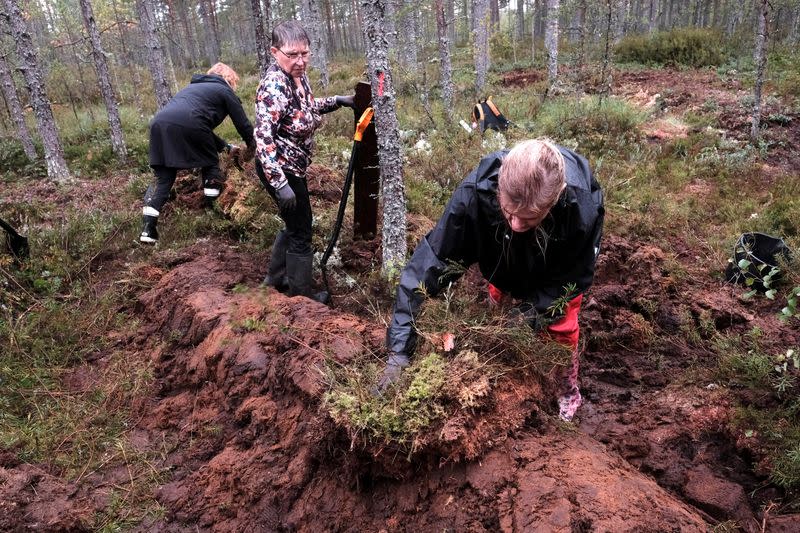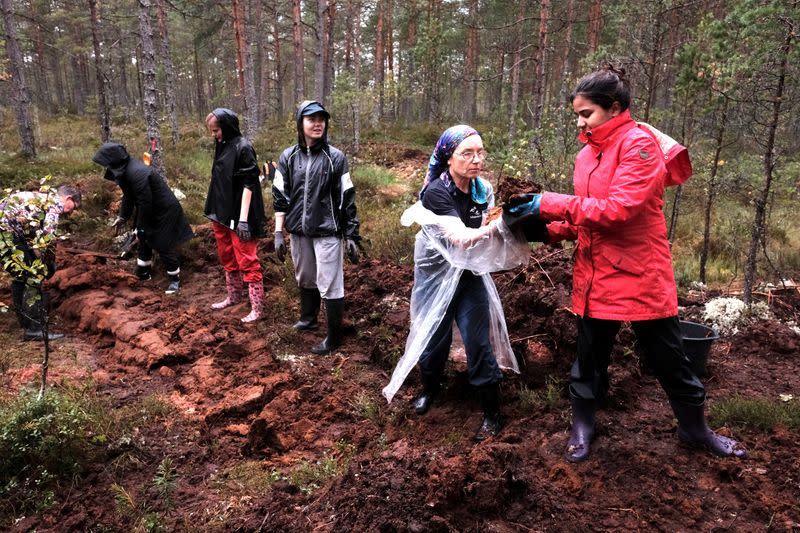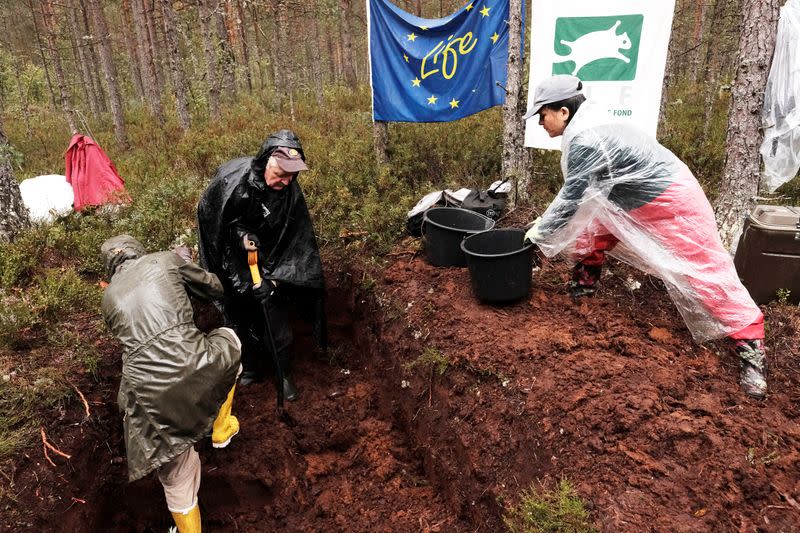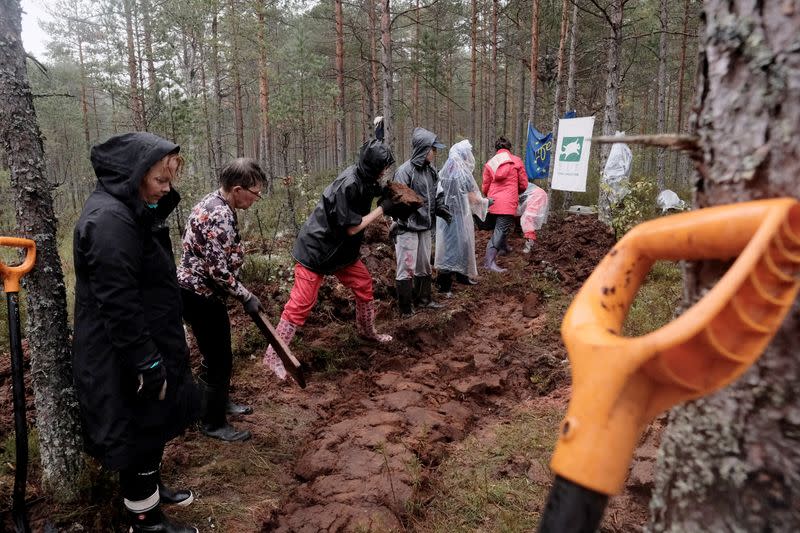Bring back the bogs: Estonian volunteers get hands dirty in climate fight
LAUKASSOO, Estonia (Reuters) - Deep in the Estonian woodlands, a group of volunteers is toiling to restore a bog that was drained last century for mining purposes, turning the area into a major source of greenhouse gas emissions no longer trapped in damp, heavy earth.
A third of all carbon dioxide emissions in the country come from the bogs, drained to mine peat, the flammable substance accumulated there over millennia and used as a fuel to power factories and households or as a natural fertilizer.
Estonia is not alone in contending with the problem. Drained bogs are leaking carbon dioxide in areas around the Baltic Sea and many other parts of Northern Europe.
"I was living near a bog when I was a child. My uncle owned a glass factory there, and he was burning peat from the bog in the factory", said Maie Matiek, a 65-year-old retiree.
She and six other volunteers spent the day in boots and rubber gloves, digging up the forest floor and helping to shift large lumps of deep-brown peat.
They are clearing out a ditch used to drain water from the bog, then blocking the channel with peat to recreate the marshy environment.
Although peatland covers only 3% of the earth's land surface, those deposits contain twice as much carbon as all the world's forests put together.
In European countries such as Denmark, the Netherlands and Germany, swamps have been all but destroyed to harvest the peat.
A warmer climate has also contributed to peatland gas emissions, drying out bogs naturally and setting peat on fire in places such as Siberia and Indonesia.
In the European Union, restoring peatlands is one element of its planned trillion-euro fund to cut its net emissions to zero by 2050.
And Scotland, where distillers dry damp malt over peat-heated fire to give a smoky flavour to their whisky, has committed to spend 250 million pounds over the next 20 years to restore its bogs.
Back in Estonia, the volunteers round off their day by stomping on the ground now filling the ditch, compressing it to stop water escaping.
"You feel you're helping nature," said volunteer Biplabi Bhattarai, a 28-year-old student from Nepal, as she nibbled forest blueberries and ate fish soup from the communal pot.
"But you also get to enjoy the camping, the food and the good company."
(Reporting By Andrius Sytas and Ints Kalnins; editing by Niklas Pollard and Mike Collett-White)






